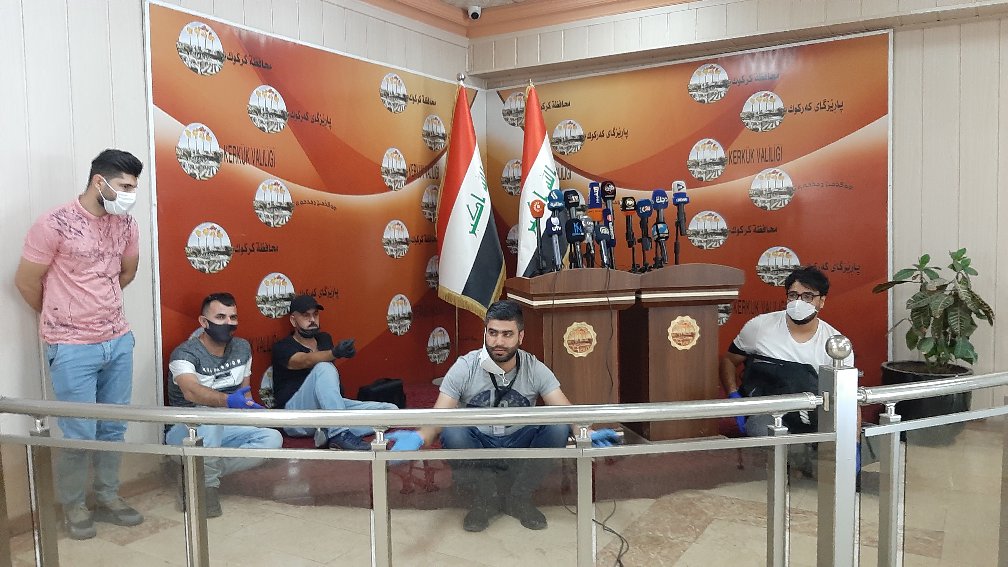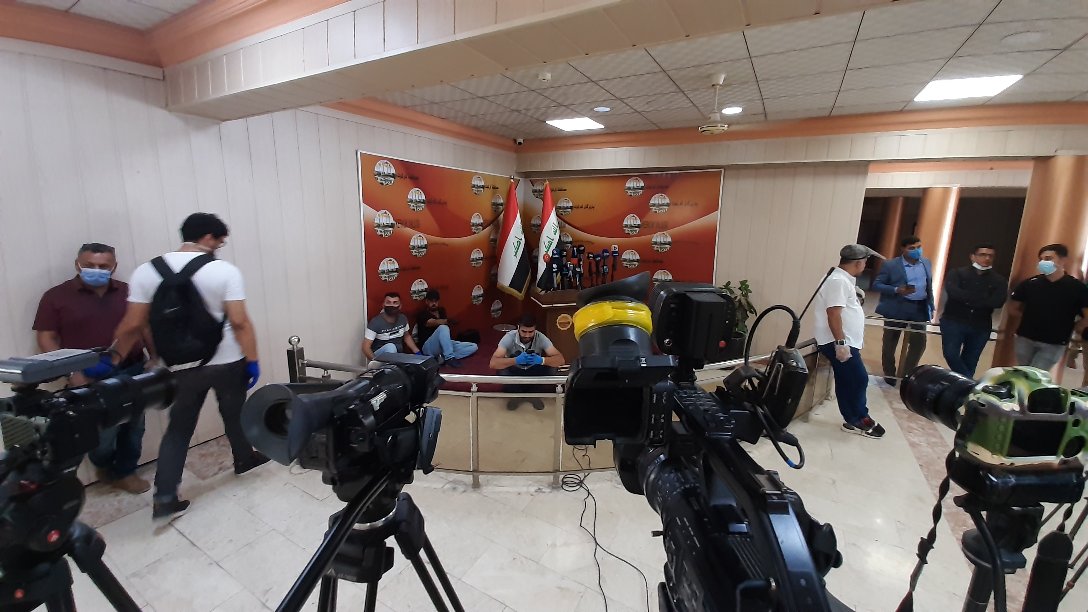When covering events, journalists in Kirkuk are often subjected to assaults by security forces; they get beaten and their equipment gets destroyed. Politicians and government officials also keep delaying their press conferences, making journalists sometimes wait for hours.
Four reportes were assaulted by security forces on 23 August when they were trying to cover the explosion of an IED in Kirkuk’s Qadisiya neighbourhood.
Two armed men approached me, and without asking for which outlet I was working, started assaulting me
Nozheen Jola, a reporter for Anadolu Agency, was one of the four reporters. He said: “I was filming the place of the incident from a distance of 50 metres. Two armed men approached me, and without asking for which outlet I was working, started assaulting me. They slapped and kicked me. They said ‘you like it when explosions occur’.
Another one joined them, and all three kept beating me.”
Nozheen added: “They also broke my camera, my voice recorder, and my mobile phone.”
Security forces also beat three other reporters who were trying to cover the same incident. One of them was Yusif Murad, who works for Kirkuk satellite TV channel. The other two were Nawzad Herish and a cameraman of Kurdistan 24 news outlet.
But none of the reporters have filed legal complaints.

“I have contacted several security apparatuses in Kirkuk. They all deny that that unit [who assaulted me] belonged to them. So, I don’t know whom I should file a complaint against,” said Nzheen.
According to Kirkuk’s branch of Kurdistan’s Journalist Syndicate, 50 violations against journalists have taken place this year so far.
Among those 50 violations, there are cases of torture, chastisement, humiliation, and confiscation of journalism equipment
Mahdi Zriyan, the head of the Syndicate’s Kirkuk branch, told KirkukNow: “The statistics show that conditions are bad for journalists. Among those 50 violations, there are cases of torture, chastisement, humiliation, and confiscation of journalism equipment.
Before, we were suffering at the hands of the internal security forces; currently there are soldiers inside this city; it is militarized.”
Currently, there are several different forces inside Kirkuk, among them are Iraqi Army, PMU, Federal Police, and the Brigade 61 of Special Forces. This is according to Mahdi Zriyan the main problem, because journalists don’t know how to deal with the situation.

“I urge journalists not to interact with those forces harshly, so that they can report the news instead of becoming the news themselves.”
Another problem that journalists face, is making them wait for press conferences to start. Sometimes they have to wait up to two hours.
“For journalists, that is demeaning for their profession in Kirkuk.”
On the same day the four journalists were assaulted, Arshad Salehi, head of Iraqi Parliamentary Human Rights Committee, and Khalid Mafraji, a member of parliament, made journalists wait more than two hours before they started a press conference.
They had notified journalists that the press conference would start at 12:00, yet they started it at 14:15, without giving any explanation or apologies.
This has happened many other times during press conferences by other government officials and politicians.
Officials often don’t start their press conference at the announced times
Qays Zubaidi, a journalist in Kirkuk, said: “Officials often don’t start their press conference at the announced times. This creates problems for our TV channel, because they plan their schedule to broadcast [the conference] live. This is the biggest problem for us.
We have requested officials many times to start their press conferences on time, but they don’t reply.”
Rodi Anwar, another journalist in Kirkuk, urges security forces to instruct their personnel on how to treat journalists. “They should be taught about the laws and instructions on journalism.”
Rodi added: “It is the task of both the Iraqi and Kurdistan Journalists Syndicate to speak out about these conditions and put a stop to the violations.”





